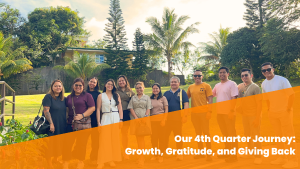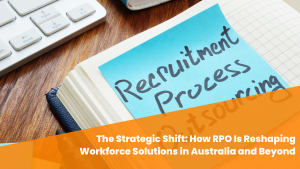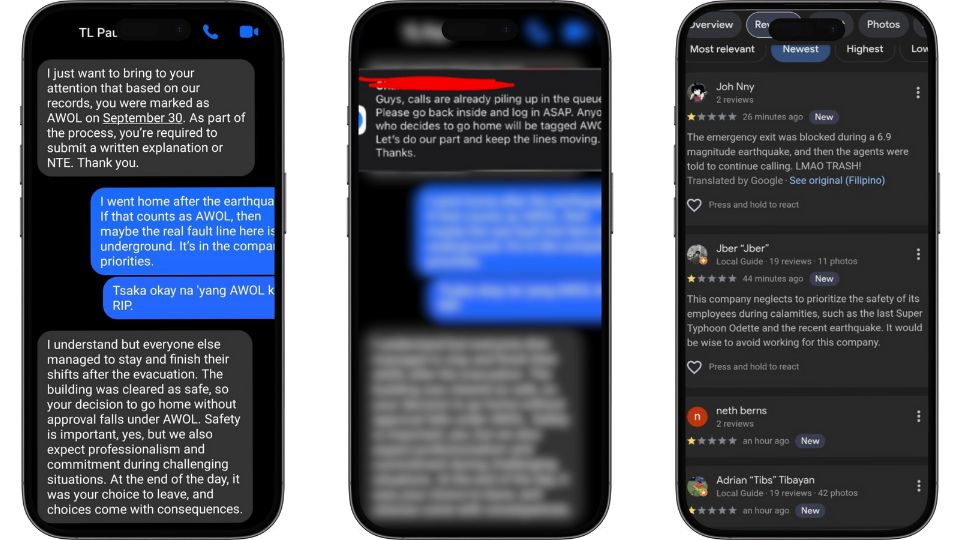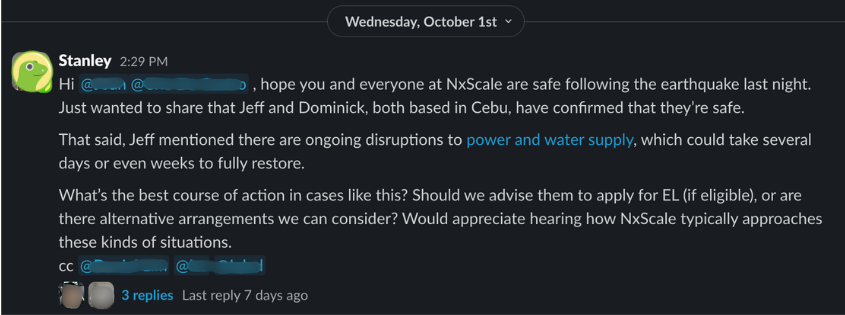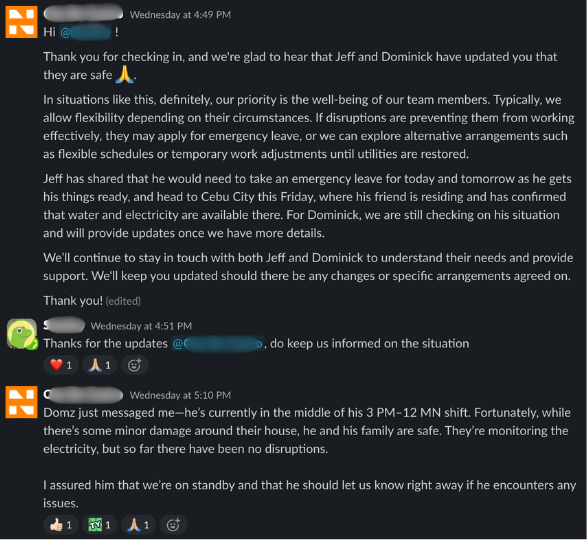
Australia-Philippines Business Partnership: A Strategic Alliance for Mutual Prosperity
Australia-Philippines Business Partnership: A Strategic Alliance for Mutual Prosperity
The elevation of the Australia-Philippines relationship to a Strategic Partnership in September 2023 marked a transformative moment in bilateral relations. What distinguishes this partnership from other regional arrangements is not merely its economic scale, but the depth of shared values, historical bonds, and complementary strengths that create unique opportunities for businesses on both sides.
What Sets This Partnership Apart

The Australia-Philippines business relationship stands out in Southeast Asia for several compelling reasons. Unlike purely transactional arrangements, this partnership is built on almost 80 years of diplomatic relations and enriched by over 400,000 Australians of Filipino heritage—Australia’s fifth-largest diaspora community. This human dimension creates natural bridges for business, cultural understanding, and trust that cannot be replicated through policy alone.
The strategic partnership is established in the spirit of friendship, and founded on shared democratic values and a common vision for the region where strategic agency is freely exercised and sovereignty is upheld. This foundation matters profoundly in an era of geopolitical uncertainty, providing businesses with a stable, values-aligned framework for long-term planning and investment.
The partnership benefits from high-level institutional support that few bilateral relationships enjoy. With annual Defence Ministers’ Meetings, biennial Philippines-Australia Ministerial Meetings (PAMM), and dedicated dialogues on trade, investment, and maritime security, the relationship operates through multiple reinforcing channels. More than 250 major Australian companies already operate in the Philippines, employing over 44,000 Filipinos, demonstrating the partnership’s practical impact beyond diplomatic declarations.
Prime Opportunities for Australian Businesses

The Philippines presents Australian businesses with a dynamic market of 113 million people, robust GDP growth averaging 6% annually, and systematic economic liberalization creating new entry points across key sectors. According to Lanie Dormiendo, Director of International Investments Promotion Service of the Philippine Board of Investments (BOI), the following are the priority sectors for Australian investments.
Mining and Mineral Processing
The Philippines represents one of Southeast Asia’s most compelling mining opportunities, with an estimated AU$1 trillion in untapped mineral reserves of copper, gold, nickel, zinc, and silver. Remarkably, only 5% of these reserves have been explored and mining contracts cover just 3% of potential areas, positioning the Philippines as the fifth most mineralized country globally with massive untapped potential.
The Marcos administration’s mining-friendly policies have revitalized the sector, with metal production increasing almost 32% in 2022 and the Mines and Geosciences Bureau predicting another 190 mining projects in the next 4 years. There are currently 56 operating metallic mines and 7 processing plants or smelters, with significant expansion ahead.
Australian Mining Equipment, Technology and Services (METS) companies are particularly well-positioned, given the Philippine government’s emphasis on responsible and sustainable mining practices. Opportunities span the entire value chain: prospecting, exploration, drilling services, geochemical analysis, extraction, refining and processing, environmental management, community development, and mine rehabilitation. Australian expertise in ESG frameworks, technical services, and sustainable mining practices aligns perfectly with the Philippines’ development goals.
The downstream processing opportunity is equally significant. The government’s focus on value-added mineral processing—transforming raw ores into refined products—creates demand for metallurgical expertise, processing technology, and industrial infrastructure where Australian companies excel.
Electric Vehicle and Battery Precursor Production
The Philippines’s position as a major nickel producer (430,000 metric tons in 2024, representing approximately 25% of global supply) and holder of approximately 3% of global cobalt production creates exceptional opportunities in the electric vehicle battery value chain. However, the country currently exports 90% of nickel as raw ore, missing the lucrative midstream and downstream processing that transforms nickel into battery-grade materials.
The StB Giga Factory, opened in September 2024 in Tarlac, represents the country’s first lithium battery manufacturing facility, aiming to produce batteries for up to 18,000 EVs annually by 2030. This is just the beginning—the Department of Trade and Industry’s Electric Vehicle Incentive Strategy (EVIS) could generate up to ₱11.4 trillion in economic output and create nearly 700,000 local jobs in EV assembly, battery production, and maintenance services.
Australian companies can participate across multiple entry points: establishing HPAL (High Pressure Acid Leaching) refineries to process nickel ore into high-purity nickel sulfate or mixed hydroxide precipitate (MHP), developing cathode manufacturing facilities, providing engineering and technical services for battery production, supplying specialized materials and equipment, and developing battery recycling infrastructure. The Philippines’ existing lead-acid battery recycling capabilities provide a foundation for transitioning to lithium-ion battery recycling as the EV fleet expands.
With the Philippine government targeting 2.5 million electric vehicles by 2028 and EV registrations growing from 24,286 in 2024 to 29,715 in just the first seven months of 2025, the domestic market is expanding rapidly while ASEAN’s EV pact offers duty-free regional export opportunities.
Renewable Energy Generation and Manufacturing of Energy-related Equipment
The Philippines’s energy transition creates opportunities across generation, storage, and manufacturing. With renewable energy now open to 100 percent foreign ownership and national targets of 35 percent renewables by 2030 and towards 50 percent by 2040, the sector is experiencing unprecedented liberalization.
Australian companies possess world-class capabilities in solar photovoltaic systems, offshore and onshore wind power, geothermal energy (the Philippines already ranks among the world’s top geothermal producers), energy storage solutions and grid integration, smart grid technology, and renewable energy project development and financing—all critical to the Philippines’ energy independence and decarbonization goals.
The manufacturing dimension presents additional opportunities. The Philippines has the potential to become a regional hub for solar panel components, wind turbine parts, energy storage systems, and grid infrastructure equipment. Australian expertise in advanced manufacturing, quality control systems, and technology transfer can help establish these capabilities while serving the growing ASEAN renewable energy market.
The Build-Better-More infrastructure initiative’s 186 projects valued at ₱9.6 trillion includes substantial energy infrastructure, creating demand for engineering, project management, construction, and technology services where Australian firms excel. The integration of renewable energy with mining operations, industrial facilities, and commercial developments offers additional opportunities for hybrid power solutions and microgrid development.
Agribusiness
The Philippines’ agrifood market, estimated at AU$71.9 billion in 2023, represents substantial opportunity for Australian agricultural exporters, technology providers, and investors. Australia currently holds just 6% market share, with significant room for expansion as AANZFTA (ASEAN-Australia-New Zealand Free Trade Area) and RCEP (Regional Comprehensive Economic Partnership) reduce trade barriers.
The trade opportunity is already strong and growing. Australia has become the Philippines’s top source of beef and lamb, second-top source of wines, and leading supplier of fresh table grapes, citrus, and stone fruit. The country imports 99 percent of its dairy, yet Australia supplies only 3.5 percent—enormous untapped potential exists in dairy products, particularly premium and specialty varieties demanded by the expanding middle class.
Beyond direct exports, the Philippines needs agricultural technology and expertise. The modernization of the agricultural sector creates demand for precision agriculture technology, post-harvest handling and processing equipment, cold chain logistics and storage solutions, agricultural inputs and biotechnology, sustainable farming practices and training, and agribusiness development and financing. Australian companies can provide comprehensive solutions from farm to retail, including modern retail formats, quality assurance systems, and supply chain optimization.
The growing middle class, increasing urbanization, and rising consumer sophistication drive demand for premium food products, organic produce, specialty ingredients, and food safety systems—all areas where Australian businesses can add significant value. Investment opportunities extend to contract farming arrangements, joint ventures in food processing, distribution infrastructure, and agricultural research partnerships.
Education
With a median age of just 25 years and a population dividend of highly educated, English-speaking workers, the Philippines offers substantial opportunities for Australian education providers across multiple segments.
The government’s focus on upskilling for advanced manufacturing, technology, semiconductor production, and higher-value services sectors creates demand for technical and vocational education and training (TVET) programs, industry partnership programs and work-integrated learning, professional credential and certification programs, executive education and management development, and technology-enabled learning platforms. Australian institutions can deliver these through local partnerships, offshore campuses, online delivery, or hybrid models.
The mining sector partnership demonstrates the potential—the Philippines-Australia Resources Education Excellence Program (PAREEP) provides scholarships for Filipino students in mining engineering, geology, metallurgy, mine safety, environmental management, and community development, supported by both governments and private companies.
International student recruitment remains strong, with Filipino students representing a significant cohort in Australian universities. Opportunities exist to expand pathway programs, articulation arrangements, and transnational education offerings that allow students to begin studies in the Philippines before transitioning to Australia.
The quality assurance and accreditation sector presents another opportunity, with Australian educational expertise valued for developing curriculum frameworks, assessment standards, teacher training programs, and educational technology integration. Research collaboration between Australian and Philippine universities, particularly in areas like agriculture, renewable energy, marine science, and disaster resilience, creates mutual benefits and strengthens institutional relationships.
IT-Business Process Management
The Philippine IT-BPM industry, generating almost AU$60 billion (US$40 billion) in export revenues in 2025 with 1.9 million workers and projected to reach AU$63 billion (US$42 billion) in 2026, represents opportunities for Australian businesses beyond traditional outsourcing relationships.
The sector is evolving from contact centers toward higher-value services. Growth in Global Capability Centers (GCCs) and Knowledge Process Outsourcing (KPO) delivers more specialized, knowledge-based services in financial services, healthcare services management, IT and software development, animation and game development, data analytics and AI services, and cybersecurity operations. Australian companies can establish Philippine operations to access this talent pool for regional and global service delivery.
The Philippines is actively expanding its IT-BPM presence in Australia, with approved PEZA investments in the first half of 2025 reaching PHP72.36 billion (AU$1.8 billion), marking a 59% increase, with the IT-BPM sector as a major driver. Filipino IT-BPM professionals are highly regarded for their technical expertise, problem-solving abilities, English proficiency, and cultural alignment with Western business practices.
Australian opportunities include establishing offshore development centers and shared services hubs, partnering with Philippine providers for digital transformation services, investing in IT-BPM infrastructure and facilities, developing specialized training and capability development programs, and collaborating on emerging technologies like artificial intelligence, blockchain, and cloud computing. The CREATE MORE (Corporate Recovery and Tax Incentives for Enterprises to Maximize Opportunities for Reinvigorating the Economy) Act’s allowance for up to 50% remote work while retaining tax incentives provides operational flexibility.
The sector’s decentralized growth, reaching regional hubs like Cebu, Iloilo, Bacolod, Davao, Cagayan de Oro, and Clark, offers cost advantages compared to Metro Manila while maintaining access to quality talent. As the industry transitions toward AI-augmented services and more complex functions requiring empathy, cultural understanding, and sophisticated problem-solving—areas where Philippine workers excel—opportunities for Australian-Philippine collaboration will intensify.
Additionally, Dormiendo states that “the IT-BPM [sector] provides one of the most compelling opportunities for Australian businesses in the Philippines. Recognized globally for its ability to deliver world-class business and digital services at scale, the country has built a strong reputation based on its deep talent pool, cost competitiveness, and robust infrastructure. This sector encompasses a wide range of services, including contact centers, global shared services, information technology and software development, healthcare information management, as well as creative fields such as animation and game development.“
Underappreciated Philippine Advantages

Australian businesses often overlook several competitive advantages that make the Philippines an exceptional investment destination.
Talent Quality and Scalability
Beyond being the second-largest business process outsourcing hub globally, the Philippines produces tens of thousands of engineers, IT professionals, and technically skilled graduates annually. More than cost savings, it’s about accessing talent that combines technical proficiency with English fluency, cultural adaptability, and strong service orientation. Companies like GHD have grown from a handful of employees to over 1,000 in the Philippines, leveraging this talent pool for regional and global operations.
Strategic Geographic Position
The Philippines serves as more than a single market—it’s a platform for accessing ASEAN’s 672 million consumers and US$4 trillion economy. Through membership in AANZFTA and RCEP, businesses established in the Philippines benefit from preferential access to the world’s largest trading bloc. The archipelago’s location along critical maritime routes enhances its role in regional supply chains.
Recent Regulatory Reforms
The Philippine government has systematically dismantled investment barriers through landmark legislation. The CREATE MORE Act introduced a 20% corporate income tax rate for registered enterprises and enhanced incentives. The Public Services Act amendments now allow 100% foreign ownership in telecommunications, airports, seaports, railways, and renewable energy—sectors previously restricted.
The Green Lanes for Strategic Investments program fast-tracks approvals for priority projects, addressing historical concerns about bureaucratic delays. These reforms reflect genuine commitment to improving the investment climate, not just rhetorical promises.
The TEZ (Tourism Enterprise Zone) Framework
“One competitive advantage often overlooked is the TEZ framework, which offers fiscal incentives, streamlined regulation, and government-supported infrastructure—ideal for high-impact tourism projects,” says Atty. Karen Mae Sarinas-Baydo, Assistant Chief Operating Office for TEZ Management Sector – TIEZA (Tourism Infrastructure and Enterprise Zone Authority). The TEZ framework was established under Republic Act No. 9593 (Tourism Act of 2009) as a strategic investment program designed to help develop specific sectors with high potential for tourism.
Atty. Sarinas-Baydo also highlights the Philippines’s young and highly adaptable workforce that’s ready to support tourism operations, hospitality services, and investment-driven developments. “These advantages position the Philippines as a natural partner for sustainable tourism development and regional expansion,“ she adds.
Strong Credit Ratings
According to Dormiendo, the Philippines continues to enjoy reaffirmed investment-grade credit ratings from major international agencies, which “validate the country’s sound macroeconomic fundamentals, fiscal discipline, and consistent policy environment“:
- A- (Stable) – R&I
- A- (Stable) – Japan Credit Rating Agency
- BBB (Stable) – Fitch Ratings
- BBB+ (Positive) – S&P Global Ratings
- Baa2 (Stable) – Moody’s
These ratings help reinforce the confidence of global investors.
Economic Resilience and Stability
Despite global headwinds, the Philippines maintains investment-grade sovereign credit ratings, sound macroeconomic fundamentals, and positive business sentiment. Remittances from overseas Filipino workers, representing 8.3% of the GDP, provide consumption stability and reduce economic volatility. This resilience matters especially for businesses planning investments for the long term.
How Organizations Support Philippine Operations

A sophisticated ecosystem of Australian and Philippine agencies works collaboratively to facilitate business establishment and expansion.
Austrade and Investment Facilitation
Austrade plays a central coordinating role through its Southeast Asia Economic Strategy to 2040 and the market-specific guide Invested: The Philippines to 2040. The agency provides market intelligence, facilitates high-level introductions, organizes investment missions, and helps Australian businesses navigate regulatory requirements.
Investment Deal Teams in Australia and Southeast Asia work closely with investors throughout their investment journey, from initial feasibility through establishment and expansion. Austrade’s Landing Pads program offers Australian startups and scaleups soft-landing facilities, mentorship, and networks to establish operations in Southeast Asia, including the Philippines.
The Philippine Board of Investments
The BOI serves as the Philippine government’s lead agency for industry and investment promotion, providing comprehensive, end-to-end assistance to both Filipino and foreign investors. Its main goal is to help investors navigate regulatory requirements, secure incentives, and coordinate efficiently with relevant government agencies. The BOI even goes beyond investment servicing to assist businesses in addressing operational concerns, connecting with government support programs, and exploring opportunities for expansion, diversification, or reinvestment.
The agency also plays a vital role in policy formulation, being a leader in the implementation of Executive Order No. 18 (EO18), which institutionalized the Green Lane for Strategic Investments. By leading industry and investment promotion, the BOI proactively positions the Philippines as a competitive hub for manufacturing, innovation, technology, and sustainable development.
The Philippine Tourism Infrastructure and Enterprise Zone Authority
TIEZA, as the investment promotion agency for tourism in the Philippines, provides end-to-end facilitation to foreign businesses and investors. It helps foreign investors with site selection, registration with the TEZ, incentives management, and coordination with local and national partners. The agency ensures clarity and alignment with national tourism priorities, highlighting the Philippines as a stable, well-supported environment for Australian businesses.
Financial Support Mechanisms
The Southeast Asia Investment Financing Facility, with AU$2 billion in capital, leverages Australian private sector investments in the region. The Partnerships for Infrastructure program provides early-stage project preparation support and co-investment opportunities, reducing risk for Australian firms entering Philippine infrastructure projects.
Export Finance Australia offers loans, guarantees, and insurance products that help Australian companies manage financial and political risks associated with Philippine operations. The Australian Development Investment facility recently made its first-ever impact investment in the Philippines, extending PHP172 million to support Filipina entrepreneurs and gender-focused SME’s.
Business Chambers and Networks
The Australia Philippines Business Council (APBC), headquartered in Sydney, serves as the premier organization dedicated to promoting trade and investment, offering members access to networking events, sector-specific roundtables, regulatory briefings, and direct connections with both Australian and Philippine business leaders and government officials.
In the Philippines, on the other hand, there’s the Australian-New Zealand Chamber of Commerce Philippines (ANZCHAM), which provides corporate partnership programs, advocacy services, market insights, and platforms for meaningful business connections.
These chambers facilitate practical knowledge sharing, from regulatory compliance to operational best practices.
Government-to-government Cooperation
The Australia-Philippines Development Partnership Plan 2024-2029 coordinates development assistance with economic cooperation, supporting human capital development, institutional strengthening, and infrastructure that benefits the broader business environment.
Australia is developing a new PHP1.7-billion economic-development program using innovative approaches to support the improvement of local business and the economic regulatory environment. This reflects Australia’s commitment to addressing systemic constraints that affect all foreign investors, not just Australian firms.
Business Championship Initiative
The appointment of Macquarie Group CEO Shemara Wikramanayake as Australia’s business champion for the Philippines facilitates practical and substantial boosts to business links. This role provides CEO-level advocacy, organizes high-profile business missions, and opens doors that might otherwise remain closed to individual companies.
The Philippine government reciprocates with initiatives like the Maharlika Investment Fund, which began in 2025 and prioritizes critical infrastructure and strategic sectors where partnerships with foreign investors like Australia are actively encouraged.
A Partnership Built to Last
The Australia-Philippines business partnership stands at an inflection point. The elevation to strategic partnership status, combined with systematic Philippine economic reforms and Australian strategic refocusing on Southeast Asia, creates a unique window for businesses willing to engage seriously with this market.
What makes this partnership truly distinctive is not merely the economic opportunities, substantial as they are, but the foundation of shared values, deep people-to-people ties, and mutual strategic interests that create conditions for sustainable, long-term business relationships. As both countries navigate an uncertain global landscape, their partnership offers stability, complementarity, and genuine prospects for mutual prosperity.
For Australian businesses, the message is clear: the Philippines is not just another market—it’s a strategic partner where investment today positions companies for decades of growth as one of Asia’s most dynamic economies continues its ascent.
The support infrastructure is in place, the opportunities are substantial, and the timing is right. The question is not whether to engage with the Philippines, but how quickly and strategically one can deepen that engagement.

